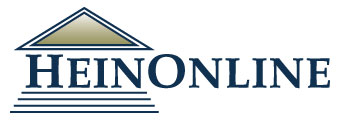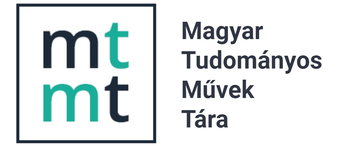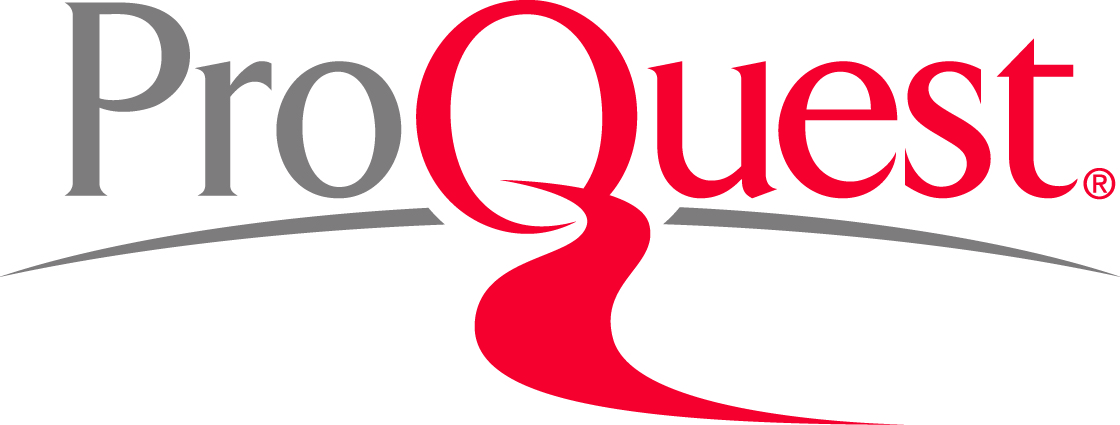Code of Ethics
- Declaration on moral and ethical principles of publishing
The Journal of Agricultural and Environmental Law (ISSN: 1788-6171) – hereinafter referred to as the Journal – applies double-blind peer-review. Each party contributing to the publication (author, journal editor, reviewer and publisher) shall accept the standards relevant for the expected moral behaviour. The present moral statement is based on the Best Practice Guidelines for Journal Editors applicable by journal editors of the COPE (Committee on Publication Ethics, http://publicationethics.org/about).
- Peer-review
The Journal only accepts original manuscripts which have not been published in other journals in English prior to the submission to the Journal. With the exception of English earlier publication in any national language is not an obstacle of submission.
Submitted manuscripts are subjects to a general editorial review before being sent to peer-reviewers. Peer-reviewers are experts in the field relevant for the respective manuscript, and their independence is ensured both from a personal and an organisational viewpoint.
The peer-review is based on anonymity in both directions. It means that peer-reviewers do not know the identity of authors, and vice versa. The Editorial Board sends all submitted papers to two experts holding a PhD in order to give their professional opinion on the respective manuscript. The Journal's editorial principle is that no study can be published in the Journal which has not received at least one supporting opinion. However, the Editorial Board reserves the right to make the final decision even in the case of two supporting opinions.
Authors are required to submit their manuscript in English.
During peer-review, correspondence with peer-reviewers is via e-mail. Correspondence in connection with peer-review and the peer-reviewers’ opinions are archived by the editor-in-chief.
While the Editor-in-Chief and editors are in charge of the formal aspects, peer-reviewers called upon by the Editorial Board are responsible for substantial aspects:
A. The Editor-in-Chief and editors shall answer the following questions:
A.1. Has the manuscript been submitted in a way to ensure anonimity? Yes/No
A.2. Does the manuscript meet the Guide for Authors? Yes/No
A.3. Did the author(s) attach the declaration that they hadn’t recommended their manuscript for publication to other journals and that their manuscript has not been published yet? Yes/No
A.4.a. In case of a PhD student, did the author(s) attach the recommendation of her/his supervisor(s)? Yes/No
A.4.b. In case of an undergraduate student, did the author(s) attach the recommendation of her/his supervisor? Yes/No
B. Peer-reviewer:
The Editorial Board may invite peer-reviewers from its own members, the International Advisory and Peer-Review Board, and/or external peer-reviewers.
Peer-review is anonymous, so authors and peer-reviewers do not know the identity of each other. The Editorial Board draws the peer reviewer’s attention that he/she maintains the final decision of publication. The Editorial Board also draws the attention that it cannot pay remuneration for peer-review, but on request it can issue a certificate about peer-reviewing.
In connection with peer-review, the peer reviewers need to answer the following questions by underlining/explicating:
Is the article of high quality? Yes/No
Are the relevant national and international sources of law and case law adequately processed in relation to the subject of the research? Yes/No (Peer-reviewers may suggest further sources of law and case law for the author to process.)
Does the article include the relevant national and international scholarly literature on the subject of the research? Yes/No (Peer-reviewers may suggest further scholarly literature for the author to process.)
Does the article evaluate the analyzed sources of law and case law, and does it contain de lege ferenda proposals? (Does the article contain original scientific results?) Yes/No
Is the citation system of the article based on the Guide for Authors? Yes/No
Does the peer-reviewer recommend the article to be published in the Journal? Yes/No/With changes (For example, with the above-mentioned additions in connection with sources of law, case law or scientific literature.)
- The obligations of peer-reviewers
Contribution to editorial decisions
Peer-reviewers help editors make their decisions and support authors anonymously in raising the academic level of their article during the process of review.
Efficiency
In case the invited peer-reviewer finds that by reason of the lack of professional knowledge on the topic included in the manuscript, she/he cannot assess the research results for originality, validity and significance, or knows that she/he cannot prepare her/his opinion effectively and in time, she/he is obliged to notify the editor and waive her/his participation.
Confidentiality
All manuscripts received for evaluation should be considered as confidential document. They can only be released or discussed with other persons with the prior consent of the editor.
Objectivity
The evaluation shall be carried out objectively. Peer-reviewers shall make their views straightforward and arguing.
Reference to sources
Peer-reviewers should shed light on those scholarly publications which have not been cited by the author(s) but are relevant and important to the respective manuscript. Any finding which contains an observation, thought or argument from an earlier scholarly publication has to be accompanied by appropriately indicating the source of that observation, thought or argument. Peer-reviewers shall also draw the editor's attention to any substantive similarity between the manuscript under examination and other scholarly materials previously published.
Disclosure and conflict of interest
Privileged pieces of information and ideas obtained during the evaluation shall be handled confidentially and shall not be used for personal promotion. No peer-reviewers can be invited to evaluate the manuscript who may be in conflict of interest with the author(s) and/or institutions.
- Decisions on publishing
The editor decides whether the manuscript submitted will be published in the Journal. The editor can be guided by the guidelines set by the Journal's Editorial Board and is limited by the current legislation on libel, copyright infringement and plagiarism. The editor may ask for help from other editors and the peer-reviewers to make her/his decision. The Journal's editor is allowed to run a computer programme for filtering out plagiarism. The journal handles complaints and appeals under the Hungarian law in force.
- Equal opportunities
The editor always evaluates the content of manuscripts regardless of race, gender, sexual orientation, religious beliefs, ethnic origin, nationality or political views of the respective authors.
- Confidentiality
The Journal's staff (editors, Editorial Board, International Advisory and Peer-Review Board) treats all pieces of information confidential regarding the manuscript submitted for publication.
- Disclosure and conflict of interest
The editor is not allowed to use the unpublished material of the submitted manuscript for his own research without the author's prior written consent.
- The Obligations of authors
Guidelines for disclosure
Authors presenting original research should provide an accurate report of the work performed. The drawing of interpretations and conclusions can only be based on facts or unbiased and logical evidence. The background data of the article should be accurately presented. The article should provide sufficient detail and reference so that the processes described can be repeated by others. False or knowingly inaccurate claims are considered unethical and unacceptable behavior. Regarding ethical oversight the Journal follows the rules of COPE.
If authors would like to revoke or correct any part of the study, they should contact one of the editors who will launch the general peer-reviewing process for the revised parts.
The publisher and the editors support correcting, clarifying, retracting or explaining the content of the article in all cases.
The submission of the manuscript and any amendments or supplements thereto shall be free of charge. The author is not remunerated for the publication.
Originality and plagiarism
The authors shall guarantee that the study is their own original intellectual work, and if they used others' works and/or expressions, they are appropriately and professionally cited. All manuscripts are subject to plagiarism and AI detection to avoid plagiarism and to ensure the publication of original materials. The publisher and editors will take the necessary steps if a manuscript is suspected of plagiarism. Under no circumstances must the publisher or the editors associate themselves with plagiarist conduct, and do not permit any form of plagiarism. If a statement for plagiarism is sent to the publisher or editors in connection with any of the studies, the editors scrutinise the circumstances and take the necessary steps. In case of suspected plagiarism, the editor enquires with the corresponding author and simultaneously gets in touch with the submitting author. If the latter does not respond within the time frame determined by the editor, he/she contacts the institution of the author with the request to investigate. Until all the questions are clarified, the Journal does not proceed with moving the manuscript forward.
Multiple, redundant or simultaneous publishing
It is not a good practice to include the manuscript of the same research in various independent publications or journals. The submission of the same manuscript to different journals is deemed unethical behaviour and unacceptable.
Reference to sources
The cited works must be properly referred to in all cases. Authors should refer to all publications that have influenced their work.
The position of study authorship
Any person who has contributed substantially to the concept, design, implementation or interpretation of the presented article should be included as author. Those should be indicated as co-authors who have contributed significantly to the study. However, those should be mentioned as contributors who have been involved in certain important stages of the research project. Furthermore, the correspondent author should warrant that all major co-authors are mentioned in the study and he has not nominated persons as co-authors who are not entitled for it and all co-authors have seen and approved the final version of the study and agreed to publish it.
Contributors to the research
Any person who contributed substantially to the concept, design, implementation or interpretation of the presented study must be included as an author. Those who contributed significantly to the study must be indicated as co-authors. However, those who were involved in certain important stages of the study/research project should be indicated as contributors. Furthermore, the main author must ensure that:
- all major co-authors are mentioned in the study,
- she/he has not nominated persons as co-authors who are not entitled to it, and
- all co-authors have seen and approved the final version of the study and agreed to publish it.
Disclosure and conflict of interest
Each author is obliged to disclose the financial or other material conflicts of interest in his manuscript which may influence its results or interpretation. All funding sources of the project should be made public.
9. Retraction
Editors will consider retracting a publication, if
- they have clear evidence that the findings are unreliable, either as a result of major error (e.g. miscalculation or experimental error) or as a result of fabrication (e.g. of data) or falsification (e.g. image manipulation);
- it constitutes plagiarism;
- the findings have previously been published elsewhere without proper attribution to previous sources or disclosure to the editor, permission to republish or justification (i.e. cases of redundant publication);
- it contains material or data without authorisation for use;
- it involves a copyright infringement or any other serious legal issue (e.g. libel, other infringement of personality rights, privacy);
- it falls under unethical research;
- it has been published solely on the basis of a compromised or manipulated peer-review process;
- the author(s) failed to disclose a major competing interest (a.k.a. conflict of interest) that, in the view of the editor, would unduly affect interpretations of the work or recommendations by editors and peer reviewers.
- the author failed to follow other policies of the Journal/Series (e.g. guide for authors, peer review)
10. Self-plagiarism
In case of self-plagiarism (text recycling) of a published manuscript, editors may consider the following steps.
They may consider publishing a correction to the manuscript when the following apply:
- sections of the text are identical or nearly identical to a previous publication by the same author(s), but
- there is still sufficient new material in the manuscript to justify its publication.
Editors may consider publishing a retraction of a manuscript in the following cases:
- There is significant overlap in the text, generally excluding methods, with sections that are identical or nearly identical to a previous publication by the same author(s).
- The recycled text reports previously published data and there is insufficient new material in the manuscript to justify its publication in light of the previous publication(s), i.e. redundant publication.
The overlap breaches copyright. In this case legal advice may be needed.








